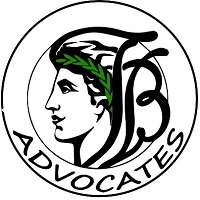
The application of the global minimum tax payable under Global Anti-Base Erosion rules
Global anti-base erosion tax policy is an external policy that has a profound multifaceted impacts on Vietnam as a country that attracts and receives foreign investment projects. Referring to OECD’s Global Minimum Tax, also known as Pillar 2, provides for the global minimum tax rate, under which foreign direct investment (FDI) enterprises will be subject to an income tax of at least 15%. Even though, from the tax management authorities’ point of view, the global minimum tax is not an international treaty nor an international commitment, and it is not obligatory for countries to apply; Vietnam still want to apply it. In case the country does not apply, it will have to accept the application of global minimum tax by the other countries collecting additional tax on enterprises in Vietnam (if applicable) that enjoy the actual tax rate in Vietnam which is lower than the global minimum rate of 15%, especially foreign-invested enterprises.
On 29th November 2023, the National Assembly of Vietnam issued Resolution No. 107/2023/QH15 (Resolution 107) on the application of global minimum tax (the Tax) to taxpayers under Global Anti-Base Erosion (GloBE) rules. Resolution 107 has been applicable since 1st January 2024 and its key provisions are as follows:
I. The application of global minimum tax onto the entities of MNE:
The application of Resolution 107 shall be onto the taxpayers, being entities of a Multinational Enterprise (MNE) Group which generates a revenue of a minimum 750 million euros (EUR) for at least two (02) years out of four (04) years preceding the fiscal year according to the consolidated financial statement of its ultimate parent entity, except for the seven (07) following cases:
- Governmental entities;
- International organizations;
- Non-profit organizations;
- Pension funds;
- Any investment fund that is an ultimate parent entity;
- Any real estate investment vehicle that is an ultimate parent entity;
- Any entity where at least 85% of its asset value is owned directly or through a chain of excluded entities mentioned in Points 1-5 above.
The MNE Group taxpayers shall pay the minimum 15% Tax rate which is applied by the authorities to avoid tax erosion in case MNEs want to shift their profits onto countries with lower tax rates. If an actual tax rate of MNE is calculated based on all constituent entities of the MNE Group that will be lower than the 15% rate, Vietnam will apply the minimum 15% rate.
II. The time limit for declaration and tax payment:
Resolution 107 provides that the time limit for submission of declarations of the Tax enclosed with a written explanation for differences between financial accounting standards and payment of the Tax is twelve (12) months after the end of the fiscal year.
The Income Inclusion Rule (IIR) requires that the time limit for submission of information declarations under the GlOBE rules, declarations of the Tax enclosed with a written explanation for differences between financial accounting standards and payment of the Tax is eighteen (18) months after the end of the first fiscal year in which the MNE Group become subject to the GloBE rules (applicable for the 1st year); and fifteen (15) months after the end of succeeding fiscal years (applicable for the following years).
III. Designation and selection of the constituent entity responsible for declaring and paying the Tax:
The term “constituent entity” of an MNE Group covers entities that are included in the Group and any permanent establishment of an entity within the Group, such as: the ultimate parent entity; the intermediate parent entity (if any); the partially-owned parent entity (if any);and any other entities, units, business establishments of the Group.
If an MNE Group has one (01) constituent entity in Vietnam, such constituent entity shall declare and pay the Tax under the GloBE rules.
If an MNE Group has more than one (01) constituent entity in Vietnam, within thirty (30) days from the end of the fiscal year, the MNE Group shall issue a document designating one of these constituent entities to declare and pay Tax under the GloBE rules. If the MNE Group fails to designate a constituent entity to declare and pay Tax under the GloBE rules within 30 days from the end of the fiscal year, the tax authority will select a constituent entity in Vietnam to declare and pay tax within 30 days from the expiration of the mentioned time limit.
IV. Transitional period and relief:
The Tax in a fiscal year shall be zero (0) during the transitional period of three (03) years since 1st January 2024 if in the fiscal year, the MNE Group has a qualified country-by-country report in which the aggregate revenue is less than 10 million EUR and pre-tax profit is less than 01 million EUR or is a loss in such country; or in the fiscal year, the MNE Group has an Effective Tax Rate in such country of at least 15% for 2023 and 2024; 16% in 2025 and 17% for 2026; or (iii) the pre-tax profit (or loss) of the MNE Group in such country is equal to or less than the substance-based income exclusion (sum of the tangible asset carve-out and payroll carve-out) calculated under the GloBE rules of the constituent entities in such country according to the country-by-country report.
It is important to note that during the transitional period, administrative penalties shall not be imposed for violations against regulations on the preparation and submission of information declarations under the GloBE rules and declarations of the Tax, enclosed with a written explanation for differences between financial accounting standards. The Government is working on the draft decree on the application of the Tax to guide further on the implementation of Resolution 107.
More information about the GloBE Rules, BEPS etc.:
OECD: Tax challenges arising from the digitalization of the economy- Global Anti-Base Erosion Model Rules (Pillar Two) examples, available at: < Tax Challenges Arising from the Digitalization of the Economy – Global Anti-Base Erosion Model Rules (Pillar Two) Examples (oecd.org)>;
EU Parliament: Briefing of the European Parliament of June 2017, Understanding the OECD tax plan to address “base erosion and profit shifting” – BEPS, available at: < europarl.europa.eu/RegData/etudes/BRIE/2017/607288/EPRS_BRI(2017)607288_EN.pdf>
@TB ADVOCATES


